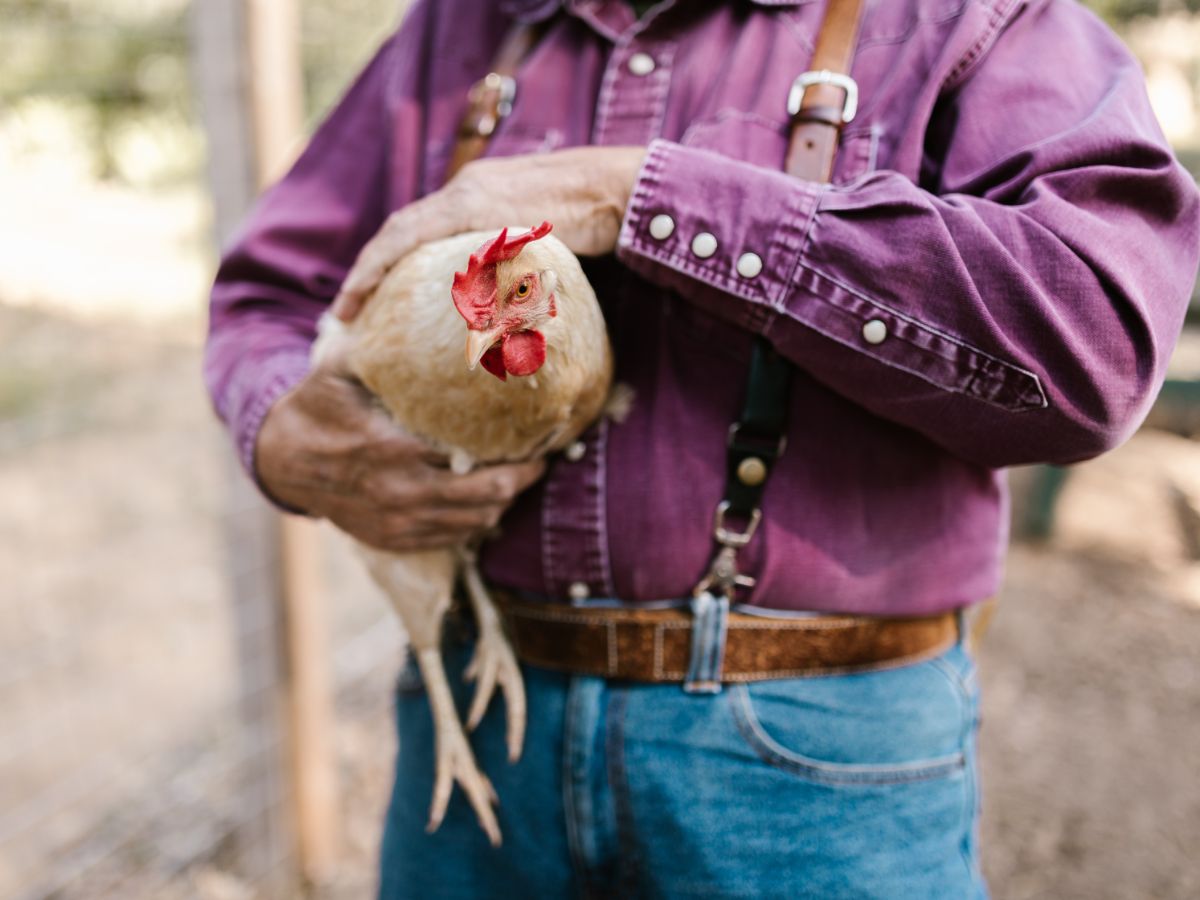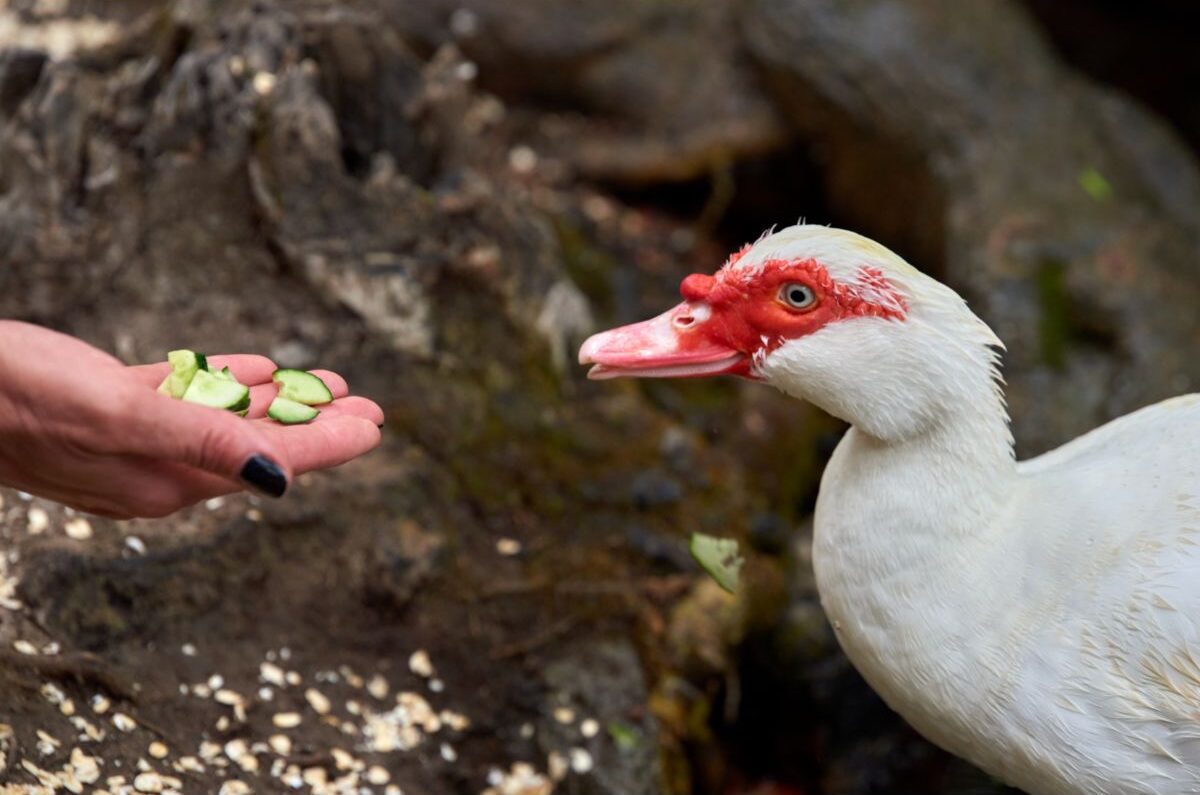With times getting tougher, many people are starting to keep small cattle on their land or in their backyard. It makes sense as you can have fresh eggs or milk depending on the animals you keep. The most popular is usually chickens. The one thing that has many people wondering is if you can get sick from handling chickens and what contagious diseases you can get.
You can get sick from handling chickens as a sick chicken infects an entire flock. Some diseases and bacteria like E-coli, Salmonella, Avian Flu, Listeria, and Campylobacter can be transmitted to humans. A few of these diseases are deadly, so you must take proper precautions when handling poultry.
When you want to keep chickens, you must know more about them. I wanted to learn more about if you could get sick just by handling chickens, and the information I found was surprising. To get first-hand advice, I went to a family friend who has kept chickens and other livestock for years. I wanted to share what I found.
Contents
Can You Get Sick From Handling Chickens?
Some diseases can be carried to humans from chickens simply by handling them. It can happen when you have an infected chicken that someone picks up, and the person accidentally comes into contact with feces.
Another way you can get sick is when you have a sick chicken and pick it up without using the proper protective gear. We know children like to cuddle and kiss their animals, but when it comes to chickens, it’s not a good idea. Diseases can spread quickly from the chicken to a human this way.
That is why taking the proper precautions when handling chickens, regardless of if you think they are sick or not, is vital. When diseases spread from animals to humans, it is called a Zoonotic disease or bug. The diseases that can be transmitted from chickens to humans that we will look at in more detail are;
- E-coli,
- Avian Flu,
- Campylobacter.
Contagious Diseases You Can Get When Handling Chickens
When you have chickens to care for, you need to know more about the contagious diseases they can transmit to you and your family and the symptoms that accompany each so you can act as soon as possible if you suspect a chicken or person might be sick.
Chickens Can Give You E-Coli
E-Coli is one of the most common diseases that can spread from chickens to humans. E-coli is a disease-causing bacteria transmitted from chickens to humans by accidentally touching chicken feces when cleaning the coop, handling the chicken, or improperly cooking eggs and chicken meat.
E-coli is a naturally occurring bacteria that humans and chickens have in their gut. It helps break down food and is relatively safe if it stays in the gut. If this bacterium moves away from the gut or is ingested somehow, it can be dangerous to the chickens and humans it infects.
The most common way chickens get infected with E-coli is when coming into contact with other chickens who are already infected or egg yolk peritonitis. Egg yolk peritonitis is when an egg forms in the reproductive system; it is often deposited into the stomach and can lead to a chick hatching with a low to high pathogenic E-coli infection.
If the infection is high pathogenic, the chick will likely succumb to it soon after hatching, but low pathogenic E-coli can go undetected for a long time, so you can have a sick chicken and not know it, spreading the bacteria to your other chickens and through eggs. That is why it is vital to know the symptoms of E-coli in chickens.
The Symptoms Of E-Coli In Chickens
It is crucial to inspect your flock daily and assess your chickens thoroughly to ensure none of them are showing signs of sickness. Here are some of the signs that one or more chickens may have E-coli;
- Cough and labored breathing,
- Listlessness,
- Decreased appetite,
- Ruffled feathers,
- Depression,
- Diarrhea and yellowish-colored droppings,
- Decrease in egg laying ability,
- Depression
Chickens Can Give You Avian Flu
Avian flu or bird flu infections are rarely seen in humans but can happen, and one of the main ways of getting sick from this is handling an infected chicken. Chickens and other birds can get Avian Flu through infected insects and rodents.
This disease is dangerous because it can spread fast, killing off an entire flock in no time and spreading the disease to humans if you don’t know what to look out for. A few ways this disease can spread are;
- If you are in direct contact with an infected chicken (when you pick it up or touch it), and then touch your face, mouth, or open wound.
- If you are cleaning and touch an infected chicken’s feces,
- If you touch the dirt where an infected chicken has dripped nasal discharge or droppings.
The Symptoms Of Avian Flu In Chickens
Some of the most common symptoms of Avian Flu in chickens include;
- Discharge from the mouth, eyes, and nose,
- Chickens won’t eat,
- Chickens are tired,
- The chickens are coughing and sneezing,
- Diarrhea,
- The chicken will have a swollen head, wattles, comb, legs, and eyes.
Chickens Can Give You Campylobacter
Campylobacter is a sickness that rarely shows symptoms in chickens, so humans are more likely to get infected with it, but the chickens won’t usually show signs of being sick. Campylobacter, also known as Jejuni, can spread to the chicken through contact with infected insects and rodents.
It spreads to humans when you handle or kiss (children) a chicken, touch your mouth, eyes, or nose, and make hand-to-mouth contact with infected bedding or feces.
The Symptoms Of Campylobacter In Chickens
Even though chickens are rarely affected by this illness, they can carry it over to humans. In the rare cases where a chicken does get sick, the symptoms will include;
- Diarrhea,
- It will look ill,
- Weakness,
- Lethargy.
Ways To Keep Safe When Handling Your Chickens
There are ways to minimize getting a contagious disease when handling your chickens. Here are a few helpful suggestions;
- Look for sick chickens every day; remember, chickens get nervous when you are in their space, so it’s best to observe from afar for a few minutes.
- Wear gloves, a mask, and gumboots when you are cleaning the coop or picking up the chickens, especially when you suspect a chicken might be sick,
- Separate any chickens you might suspect are sick away from the rest of the flock, so if you are right, it minimizes the spread,
- Call a vet if you see any indication of a serious illness in your chickens or if you see any of the symptoms or the signs we mentioned in the previous sections.
- Wash your hands thoroughly after being near or handling your chickens, removing and cleaning your shoes with mild distilled bleach.
- Please don’t touch your mouth, eyes, or nose when handling your chickens, and don’t kiss them.
Conclusion
Knowing what to look out for and the measures to take when handling your chickens is vital to keep them and yourself safe from sickness. If you suspect any of your chickens are sick, it’s best to get them to the vet as soon as you can for assessments and diagnosis and treatment and to get yourself checked out by your doctor.




